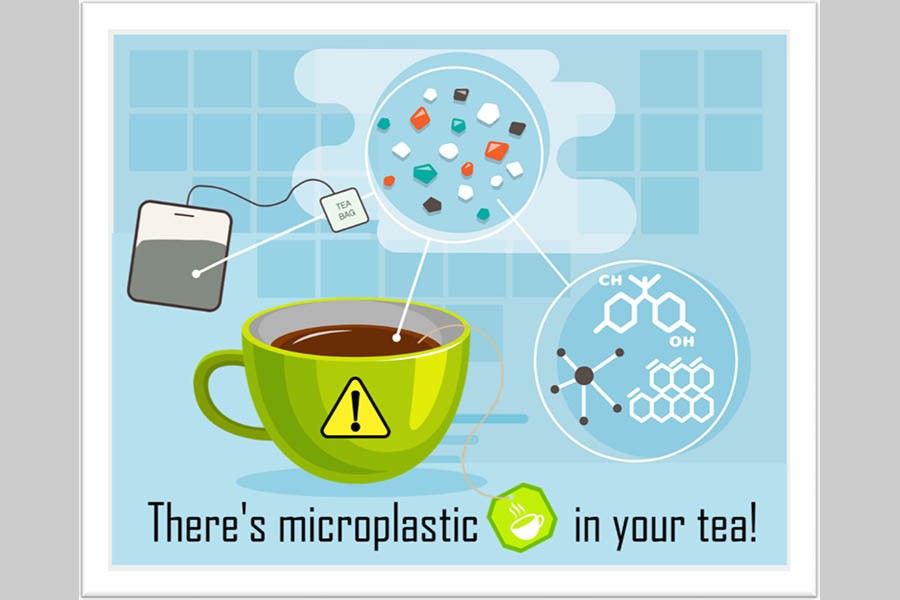Microplastic pollution is now a global concern due to its adverse effects on ecosystems and organisms. A research team of Jahangirnagar University has come up with information about the presence of a huge amount of micro-plastic particles in packaged tea bags in Bangladesh. Tea bags of five branded companies of Dhaka were taken as research samples.
Surprisingly, all of the company's tea bags contain significant amounts of microplastic particles, a high percentage of microplastic fragments and large amounts of red, blue, and brown fibres.
Researchers showed that an average of 10.9 million grams of microplastics can be emitted from tea bags in Dhaka every year and the rate is unimaginably alarming.
Although the researchers did not mention the name of those companies, they said, "We could do it according to research ethics, but we didn’t want. But surely you must have your daily tea bags among the five branded tea-bag manufacturers. The presence of pollution is really serious."
The study further found that most of the microplastic particles in the tea bags were made of ethylene-vinyl acetate (EVA), cellulose acetate (CA) and acrylonitrile butadiene styrene (ABS) polymers.
Analysis of images obtained from electron microscope scanning showed that micro-plastic fibre particles with a smooth surface formed a net-like structure. The study also found irregularly shaped particles on rough surfaces. The average size of these contaminants ranged from 200.6 micrometres to 220.7 micrometres.
The research was done by students, teachers and researchers of the Department of Environmental Sciences of JU, Sadia Afrin, Mostafizur Rahman, Ahedul Akbor, Abu Bakar Siddique, Khabir Uddin along with Guilherme Malafaia, professor, Federal Institute of Science and Technology, Brazil.
The research, titled, "Is there tea complemented with the appealing flavour of microplastics? A pioneering study on plastic pollution in commercially available tea bags in Bangladesh" is already approved by the popular journal "Science of Total Environment" and a copy has been published online
https://www.sciencedirect.com/science/article/abs/pii/S0048969722029308#!
Sadia Afrin key researcher of the project said, "This research on microplastics has been the first risk assessment in Bangladesh. There has been some qualitative work before. In 2021, there was research on micro-plastics in toothpaste abroad. Inspired by which we did it. But mathematically, we are likely to get 10.9 tons of micro-plastics only in Tea-bags of Dhaka city. It was beyond our comprehension and alarming too.
Mostafizur Rahman, associate professor in the Department of Environmental Sciences at Jahangirnagar University, said, "This study shows us that the Tea-bag we are using every morning for a cup of tea is a threat to our health. It can never be desired. Such contamination of this daily essential food item can take a deadly shape.
Since this is the first time such a study in Bangladesh, it is natural that the manufacturers are not aware of this contamination. But now they can do quality development of Tea-bags based on this research."
No significant work has yet been done worldwide to know clearly about the reaction of microplastics in the human body. However, we have done research on animals and birds before. Plastic is not digestible, so it accumulates in the body and acts as a vector for other harmful contaminants and microorganisms that pose a serious health risk- said the researchers.


